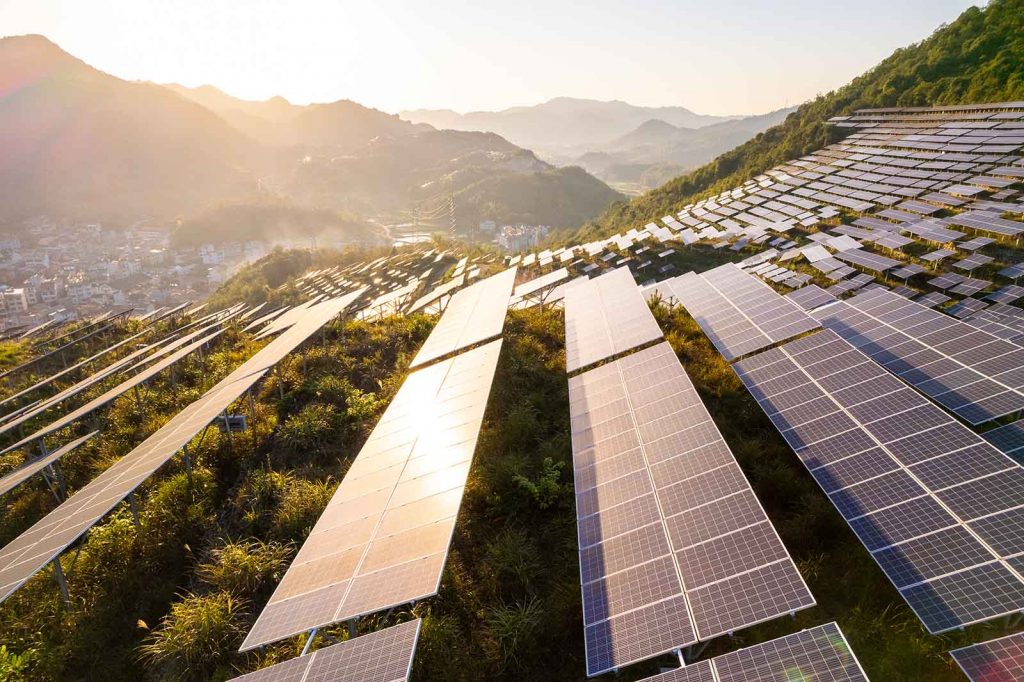
Meaning of Decarbonization:
Decarbonization refers to the process of reducing or eliminating carbon dioxide emissions released into the atmosphere by human activities. The goal is to minimize the release of greenhouse gases in order to combat global warming and its potentially devastating impacts on the climate. This goal is achieved through:
- the use of renewable energies
- increasing energy efficiency
- switching to less carbon-intensive fuels and technologies
- improving carbon capture processes
- carbon storage technologies
Decarbonization is a central element in the strategies of many countries to achieve the goals of the Paris Agreement and to shape a more sustainable future.
Overall, technological innovations and changes in production processes are indispensable for decarbonization. In addition, changes in land-use practices and the promotion of reforestation measures can help reduce CO₂ concentrations.
Measures for decarbonization are not only crucial for successfully managing the climate crisis, but also serve as a catalyst for economic innovation and development. They promote new industries and business models while at the same time challenging existing market structures.
Why is a decarbonization strategy so important?

Decarbonization changes the way energy is produced, consumed, and managed. This affects industries, companies, and the daily lives of people and the communities in which they live.
Within the framework of a comprehensive decarbonization strategy, the shift from fossil fuels to renewable energy sources such as wind, solar, and water represents a fundamental restructuring of the energy industry. This requires significant investments in new infrastructures and technologies, affecting not only energy generation but also energy storage and distribution. At the same time, new markets emerge for innovative decarbonization technologies that replace carbon-intensive processes. Substantial investments are necessary here as well. CO₂ certificates and a carbon tax can serve as means of refinancing these measures. This strengthens emerging markets and helps achieve decarbonization targets in a long-term and sustainable manner.
While some sectors (coal or oil industries) shrink or disappear, others (renewable energy sector) experience significant growth. This shifts economic dynamics as well as employee skill requirements.
Dependence on fossil fuels is replaced by a more stable and sustainable energy supply. Politically and in the international context, this ultimately means financial stability and greater independence.
Within a decarbonization strategy, the growing awareness of citizens regarding the climate crisis leads them to adjust their habits and consumption preferences. This increasing demand pressure fosters innovation and enhances the willingness to change in the economy. Companies respond to the changing needs and expectations of consumers by adapting their products and services in line with decarbonization goals and developing more sustainable solutions. This supports the broad implementation of decarbonization measures on both the demand and supply sides.
What role do citizens play in the decarbonization strategy process?
Both individually and collectively, citizens play a crucial role in helping societies achieve their climate goals. Therefore, the decarbonization strategy must be anchored in civil society. Citizens are engaged and actively participate in shaping it. The focus is less on the individual contribution to CO₂ reduction: what matters is that people are involved and experience a sense of agency in a field that was previously unfamiliar to them.
Everyone can influence CO₂ emissions through their consumption behavior. Energy use at home, choosing energy-efficient appliances, reducing air travel, using public transport, switching to electric vehicles, or cycling are all decisions that contribute to a lower-emission lifestyle.

The Klima-Taler records each of these individual decisions—automatically and within the app—providing the municipality with valuable data for mobility and traffic planning. This is implemented as gamification, with immediate rewards: the changed consumption behavior pays off, awareness of decarbonization is created, and a foundation is laid.
Financial engagement is another way for citizens to participate in the “decarbonized economy.” This can also be rewarding: citizen cooperatives build local wind farms and use and sell renewable energy; green investment funds offer opportunities to participate and position oneself in emerging sustainable markets. Overall, financial decisions shape decarbonization—and can also benefit from government frameworks.
How can a decarbonization strategy be socially equitable?
The federal government provides financial aid, grants, and tax incentives to reduce the costs of green technologies for low-income households. A key prerequisite for reducing CO₂ emissions and for associated environmental and climate policies is that citizens perceive these measures as fair. This requires that they have the opportunity to participate in shaping them.

Environmental policy has always had a clear economic benefit—but the benefit for each individual must be communicated and made tangible. The Klima-Taler provides a valuable and previously neglected starting point. It raises awareness of the kind of decarbonization that each individual can influence. It complements the concept of the “ecological footprint” with direct guidance on actions to take. And it links this with an incentive for CO₂ reduction—low-threshold, constantly present, with precise evaluation and a “climate currency” as a reward system.
Accessible to everyone, the Klima-Taler reaches not only those who are already environmentally conscious, but even more so those who have not yet engaged with the topic. This includes people who are hesitant, skeptical about changes, or simply uninterested until now.
This represents the first step toward social equity. The individual is at the center of the Klima-Taler as the measure of their CO₂ savings. The playful element is the same for all participants. It provides access to decarbonization topics and lays the groundwork for engaging citizens in socially equitable design. Is there a better way to introduce this crucial issue for a sustainable society to a broad spectrum of people?
Klima-Taler play an important role in the decarbonization strategy
In the debate about the complex concept of “decarbonization,” it is not enough to simply issue appeals or convey knowledge from politics, business, or science. Rather, society must be actively involved in the process. Too often, only “leaders” speak to the “population”—undifferentiated, top-down, and in an appeal-driven manner. Behavioral economics has long shown that messages are better received when incentives are provided. This effect can be further enhanced in a playful environment: it is an evolutionary trait of humans to want to play. “Serious gaming” leverages these tendencies, and studies and academic articles have long highlighted the associated learning benefits.
The Klima-Taler provides such incentives for CO₂ reduction—users generate a currency through their savings, which they can use for valuable offers, products, services, or discounts.
Through these incentives, awareness of decarbonization is created—and, most importantly, that it is worthwhile!
The Klima-Taler introduces the topic of decarbonization into the municipality. It addresses not only citizens but also the local economy. It is a future-oriented discount system that supports local retailers in attracting customers. At the same time, it establishes CO₂ reduction as a social norm for the entire municipality and beyond: with the Klima-Taler, payments are already possible in more than 20 municipalities, and more are added each month.
A key aspect of the Klima-Taler is that it consolidates a wide range of CO₂ reduction initiatives. Mobility and transportation, as well as household activities (electricity, heating, water), cover the areas in which citizens can engage. All of this is measurable, accessible to participants, and already leads to behavioral changes. This is exactly why the Klima-Taler is popular among participants: it demonstrates personal agency.
Decarbonization with the Klima-Taler is socially equitable
Many people fear that ambitious environmental and climate policy measures will lead to significant financial burdens. In fact, socially equitable decarbonization can reduce existing social inequalities. It lowers environmental burdens and the impacts of the climate crisis. It also places less strain on poorer individuals, as they generally produce less CO₂. Numerous studies show that people with lower incomes often live in more heavily impacted environments and therefore need protection from the consequences of the climate crisis, such as heat waves.
Social equity is an integral part of the Klima-Taler, as it is available to everyone equally and can be used to reward CO₂ reductions. In the playful competition, all participants are equal: they contribute to providing the municipality with data that helps it do its part in decarbonization.

